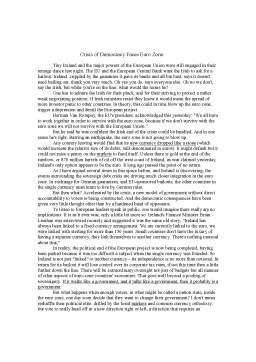Extras din proiect
Abstract:
An incursion into the use of ESP is sustained by a lexical analytic approach to various specialized text types. The specialized vocabulary, the word-formation processes and their etymology are discussed as main contributors to generalizing about the usage of ESP.
Main objectives:
A great deal about the origins of ESP could be written. Notably, there are three reasons common to the emergence of all ESP: the demands of a Brave New World, a revolution in linguistics, and focus on the learner (Hutchinson & Waters, 1987).
A broader definition of ESP by Hutchinson and Waters (1987) runs as follows: "ESP is an approach to language teaching in which all decisions as to content and method are based on the learner's reason for learning" (p.19).
As Robert Phillipson (1992) points out, "English has a dominant position in science, technology, medicine, and computers; in research, books, periodicals, and software; in transnational business, trade, shipping, and aviation; in diplomacy and international organizations; in mass media entertainment, news agencies, and journalism; in youth culture and sport; in education system, as the most widely learnt foreign language" (p.6). The dominant position of English is strengthened rather than weakened with the development of world economy and technology as well as the widespread use of computers and the Internet. Among the possible advantages that lexical analysis offer to research in these domains we could mention the following coordinates:
- increase knowledge about language-specific, typological and cultural differences, as well as universal features ;
- clarify upon the differences between general English and ESP
- provide data about the etymology of specialized word
- help in explaining structural divergences
- create a lexicon for future ESP studies.
In this paper we shall argue that words from LSP tend to migrate to the general language and vice-versa, showing that there is no real difference between the ESP and General English, as Hutchinson and Waters state in their 1987 work: “Thus, in theory there is no difference between ESP & General English, in practice, however, there is a great deal of difference”.
Corpus Analysis:
The analysis has been applied on two economic articles by studying specialized terminology occurring in different contexts. Economic terms constitute a subfield of the larger semantic field of ESP as in the 'Tree of ELT' (Hutchinson & Waters, 1987) where ESP is broken down into three branches:
a) English for Science and Technology (EST),
b) English for Business and Economics (EBE),
c) English for Social Studies (ESS).
The lexical analysis applied to these words underlines that there is no clear-cut distinction between LSP and LGP, since the name itself, that of LSP, involves the existence of LGP and there are no rules according to which certain parts of the grammar or lexicon of English appear in ESP and others in EGP. One variety of English differs from the other simply in the frequency of use of these various structural possibilities.
The selected corpus focuses on proving that special languages are complex semiotic systems based on and derived from general language and that their use is no longer restricted to communication among specialist in a certain field.
Preview document
Conținut arhivă zip
- The Lexical Analysis of Specialised Texts.doc
























